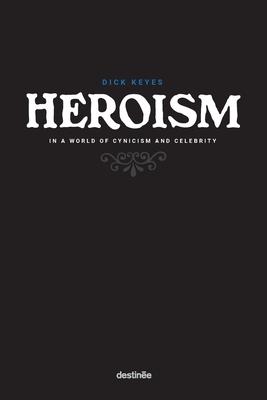Who is a hero? Start by thinking of three kinds of notable people -- talents, celebrities, and heroes. Talents do something really well. Celebrities are well known, usually for having some talent. Heroes rightly understood, have lived with a moral excellence that is worthy to be emulated.
We find two blocks to taking heroism seriously in our society -- cynicism and trivialization by celebrity. They seem to work in opposite directions. Cynicism deflates and debunks while celebrity inflates and exaggerates. But they actually work well together to discredit heroism. The more cynical you are, the more life seems trivial. The more life seems trivial, the more cynicism seems justified, so why even think about heroes?
The heroes who make it past cynicism and celebrity are not likely to be moral heroes. They are usually talented people, super-achievers from professional sports, entertainment, wealth, and power. For most of us, they are out of reach and we know it. So we have become consumers and daydreamers, skilled in vicarious fandom, psychic hitch-hiking into a heroism of compensation. These heroes do not stretch us toward aspiration, they make us more content with mediocrity. But they also drag us into self-disgust because we feel so poor, dull and ugly compared to the stars.
I have approached heroism as a Christian, convinced that we are best understood in the light of our connection with our Creator. As humans, we are each a "glorious ruin" - glory by creation in God's likeness and ruin because we are flawed by sin. Made in his image, we can reflect something of the glory of God. (Think of Maya Angelou's "We come from the creator, each of us trailing wisps of glory.") The desire for heroism is to connect with glory, greatness, or excellence in our life-story. Heroism links your imagination to your future. It also creates two powerful motivations through your imagination -- aspiration and aversion. They tell you what person you want to become and its opposite, what person you want to avoid becoming.
Pseudo-heroes do not just go away when we ask them to leave. You have to scrape off false heroes like peeling paint off a house before new paint can stick. The Bible helps us by showing us the false hero as the fool in narratives long and short. In them, the fool is unmasked, exposed not as stupid but as lacking humility before God and neighbor. He or she is revealed as the unhero, a loser, and a jerk. It is dangerous to hang out with one. In the stories of the Bible, the fool is never glamorous or attractive. The fool helps you to be disenchanted with the fool's "heroism", feeling aversion toward a pseudo-hero who is without glory or honor.
Real heroism is found in a fresh look at the imitation of Christ and other people who are Christ-like in partial and imperfect ways. This imitation is not about Jesus' supposed long hair and sandals but is about looking at specific New Testament teachings which tell you to live for each other in the ways that Jesus lived and died for you. These virtues include humility, love, service, forgiveness, willingness to suffer unjustly, and courage. The imitation of Christ cannot be reduced to one heroic virtue, as is often done with, for example, bravery. You are to reflect on all of these heroic virtues in the story of Jesus' life, be inspired, and live them out with each other as Jesus lived them out for you.
Unlike so much of today's pseudo-heroism, this heroism is accessible to anyone. Of course, we can't be perfectly Christ-like. Our final hope is in God's mercy for us in our sin. The modern pseudo-heroisms will warp our lives if we pursue them with determination. No one has been constricted by virtues. The virtues of Christ-likeness enlarge and stretch us as human beings and function as the ultimate goal for human excellence.
